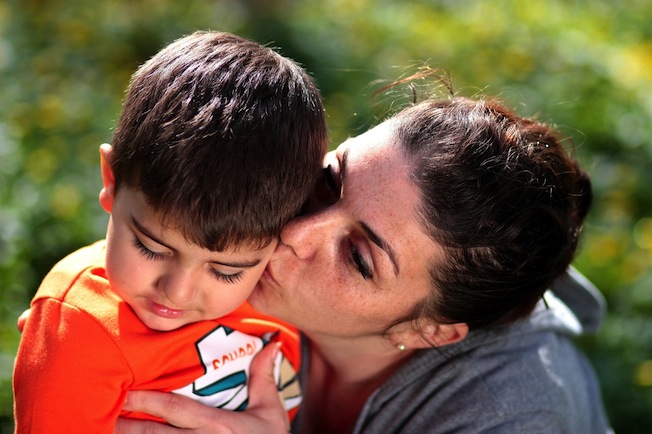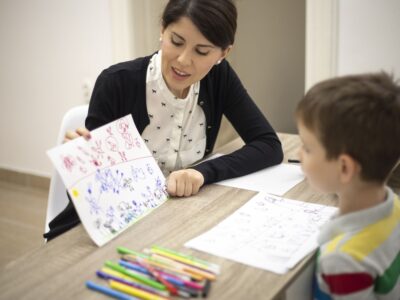The first thousand days between your child’s inception and their 2nd birthday are a crucially important window in their development, which has a major impact on their intelligence, as well as physical and mental health. By taking the time to nurture your child’s potential, you will change their lives for the better. Being a parent is the most important job you will ever do, and your child will really reap the rewards of conscious parenting.
So how can you give your bundle of joy the best start? Here’s 5 tips to raise a happy, healthy, intelligent and loving child.
- Nutrition
Eat healthily while you’re pregnant, being sure to be careful to follow your midwife/ob-gyn’s instructions about what foods and drinks you should be avoiding. Take prenatal vitamins, especially folate, as folate supplements have been proven to be very effective in lowering the risk of neural tube defects in babies. Studies have shown a link between adult intelligence and the mother having taken fish oil supplements while pregnant, so that should be on your list too. Iodine is another important nutrient, as deficiency in pregnancy has been linked to lower IQs in children.
Once your little one is eating solid foods, make sure to introduce them to a variety of healthy foods and keep the treats away for as long as possible: once they’ve tried ice-cream, it’s often hard to get them back into brocolli. Persistence is key, as some babies and toddlers can be very fussy, but encouraging them to eat a healthy diet won’t just benefit their development now: it will reduce the odds of unhealthy eating later in life.
- Empathy
Empathy is a skill that is largely developed in early childhood. Children develop empathy through their interactions with others, but especially with their primary caregiver. By bonding with your child, and building a relationship of secure attachment, complete with lots of love and cuddles, you can make a world of difference to their future relationships with others. It’s been shown that early neglect or maltreatment of children doesn’t just impede their intellectual development, but also their empathy. Build a nurturing, secure world around your child, and they should grow into gentle, loving people.
Attachment parenting techniques such as babywearing and co-sleeping are traditional parts of many cultures (although they can also be dangerous if not done right, so please read the guidelines and be aware of the risks!) They’ve proven to be very effective in terms of secure attachment, but remember: don’t overdo things, or you’ll end up feeling like a life-support system for a child, and you’ll forget that you’re a human being too. If you’re sacrificing too much and you’re frazzled and unhappy, or if having bubs in bed is impacting the relationship between you and your partner, then you need to remind yourself to care for your own needs too. A happy mother will be a better mother.
- Language development
It’s been shown that the more words a child hears in their early childhood, the more intelligent they will grow to be. Unfortunately, this can’t be words from the electronic babysitter (i.e. TV) – it has to be from real people, and it’s more effective if it’s conversations with your baby. It might feel silly having a chat to someone who can’t talk yet, but remember, they are listening and learning! Try to narrate what you’re doing for your child as much as possible, have a chat with them about your day, etc. Reading books to your child will also help them develop language skills; books create new neurons in the brain of a child, and are an excellent way to develop your child’s mind. While you’re reading the book, point to the objects or people in the book so that your little one is able to better follow the story.
A study published in General Music Today demonstrated that music is also excellent for language development: as they hear you sing, listen to the rhythm of your words, and memorize the songs through repetition, their language skills are enhanced. So when you’re singing nursery songs and lullabies to your child, you’re not just bonding, you’re teaching too.
- Play-based learning
Much of a child’s physical and mental development comes from play. They’re learning about the world and how it works, and how they interact with it. This is an important reason to minimize your child’s use of TV and tablets in the early years; the American Academy of Paediatrics recommends that your child doesn’t watch any TV for the first two years. (Yes, this is much easier said than done!) Interactive media can be educational, and the AAP is considering revising their guidelines to take that into account, but it should still be only in small amounts. There’s going to be plenty of time in their lives for tablets later, and it shouldn’t substitute for a real-life childhood. So turn off that tablet and head to the playground!
Baby gyms are a popular way for children to practice play-based learning, and have been linked to better outcomes in physical development. They’re also a fun way for your child to learn socialize with their classmates. You should also consider music for toddlers programs that will help enrich your child’s development – it’s never too early to open the world of music to your young child, and it’s a very interactive, fun way for them to learn!
- Speak with kindness and patience, and set a good example
Just like drivers who’ve learned from their parents tend to also learn their parents’ bad driving habits, there’s a good chance that if your parents made mistakes, you’ll repeat the same ones because it’s the model that you’ve seen growing up. Sometimes you may not even realize that these behaviors aren’t good for your child. Other times, you do and you’ve promised yourself not to make the same mistakes, but it’s easy to revert to bad habits when you’re under the stress of an hour-long tantrum. Speaking to your child, and the people around you – your spouse, family, etc. – with kindness and patience will mean that you are role-modeling good behavior for them to follow later. We can’t be perfect all the time, and you shouldn’t beat yourself up if you don’t always manage to reach your own standards, but setting them and trying your best will help set a mental framework to make you a great parent.
What are some fun ways that you’ve helped encourage your baby to learn and grow? We’d love to hear from our readers-with-tots about how they’ve practiced conscious parenting, so please do comment below.













Comments